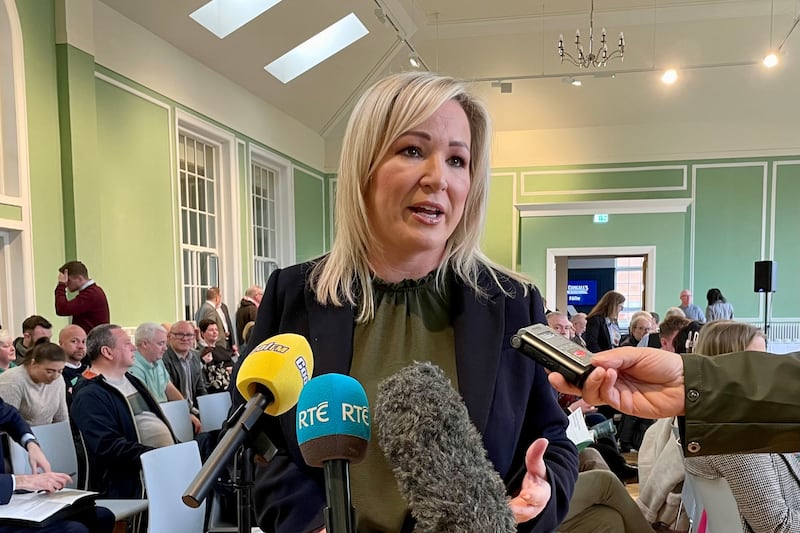THE primary purpose of the Good Friday Agreement was an end to violence, stopping the never-ending cycle of bombings and shootings that claimed thousands of lives over the Troubles.
While larger scale bombings and shootings have greatly reduced, lower level violence has persisted in what the Police Federation of Northern Ireland today calls an “imperfect and flawed” peace.
The attempted murder of Detective Chief Inspector John Caldwell in February and the raising of the terrorist threat level to severe has demonstrated a lingering danger.
A total of 171 security-related deaths have been recorded between 1998 and February this year, according to police figures.
In 1998, 55 security-related deaths were recorded including 29 civilians in the Omagh bombing.
Read more:
- Former Dungiven Police Station now home to Ukrainian family
- John Manley: The Good Friday Agreement delivered peace but the expectations of 1998 are yet to be fulfilled
This compares to the security-related death of one civilian in 2022, and none up to February 2023.
A total of 2,831 shooting incidents have been recorded since the beginning of 1998, which includes 211 in 1998, 22 in 2022 and 11 up to February 2023.
Bombing incidents since 1998 were at 1,697, which included 127 in 1998 compared to five in 2022 and one up to February 2023.
The combined total of paramilitary shootings and assaults since 1998 and February this year were recorded as 3,320.
In 1998, this was 216 (123 loyalist, 93 republican), 22 in 2022 (24 loyalist, nine republican) and 12 up to February this year (eight loyalist, nine republican).

Police Federation of Northern Ireland (PFNI) chair Liam Kelly first joined the police service in 1994 before being promoted to the rank of inspector.
He told the Irish News that conditions had improved, but officers remained under threat from “murderous thugs” in terrorist groups and organised crime gangs.
He also said that many Catholic officers still faced the difficult choice of leaving their family home to remain safe.
“There’s no denying the many positive things that have been delivered by the Belfast Good Friday Agreement,” he said.
“The peace we enjoy now remains imperfect and flawed, yet it has given us all increased confidence to go about our daily lives without the fear that characterised the 70s, 80s and 90s.
“Today, the threats we face are from what’s left of dangerous terrorist groupings and organised crime gangs. We are policing in a more normal society but remain mindful and vigilant of the nefarious intentions of these murderous thugs.”
He said the return of the threat level to severe was particularly concerning more than a decade after the murders of PSNI officers Stephen Carroll and Ronan Kerr, two officers being seriously wounded and other failed attacks.
He called the policing changes in 2001, where the RUC was rebranded as the PSNI, “a painful memory” but one officers and their families accepted for the greater good.
He said plans to reduce officer numbers and “slashed budgets” meant that essential policing services would continue to deteriorate.
“Morale is dire. Assaults on officers are on the increase and pay, especially for our student and probationer officers, is way below what it should be,” he said.
He called the support of all main political parties as “a major positive”, but said that it remained “a sad commentary” on progress that many Catholic officers still felt they had to leave their home and support networks because of their career choice.
“The targeting and evil intentions of dissident republican terrorists stand in the way of more from a Catholic background coming forward in sufficient number, and that is a terrible shame,” he said.
“We want to build a better Northern Ireland to support all communities and that means getting a more balanced religious composition. It also means society generally has to play its part in dealing with gangs who specifically stand in the way of Catholics joining the Service.
“There is still a lot of work to do but we are in a better place than we were at the time of the Agreement in 1998. The Agreement has delivered on several fronts, but for as long as a truly normal and peaceful society remains elusive, PSNI will inevitably struggle to attract men and women in sufficient number from a Catholic background.”






